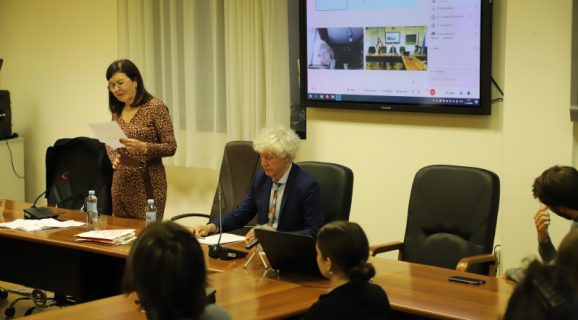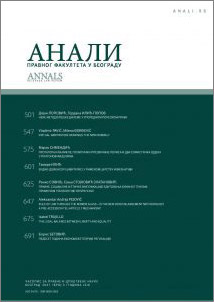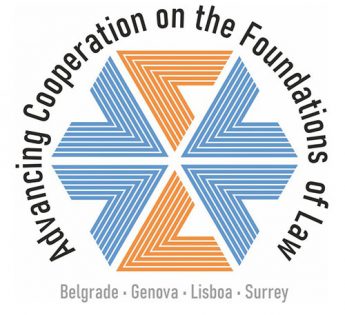
Meeting of the General Seminar, Faculty of Law, University of Belgrade (October 21, 2022), John Keane, How Democracies Die – Fast or Slow?
As part of the General Seminar at the Faculty of Law of the University of Belgrade, respected professor and world-renowned political theorist – John Keane (University of Sydney) spoke on the topic of different ways of perishing democracy.
Professor Keane outlined some of the main problems faced by democratic orders around the world, such as demagoguery, populism, large social inequalities, xenophobia, corruption or lack of media freedom. One of the approaches to “death of democracy” is that it happens quickly and decisively, most often through violent coups – like in Thailand, Palestine or Egypt. The second approach can be labeled as “gradualistic”, which implies the existence of different rhythms of death, which depend to a large extent on the will of political actors. The struggle takes place between those who support the democratic order and those who actively work to destroy it, as a result of which there are ups and downs in stability, with an emphasis on hidden processes of conflict within complex power relations. The third way is populism, which proves that manipulation and the gradual destruction of institutions can be just as effective and dangerous as firearms. The professor emphasized that the abuse of democracy against oneself also takes place in perfidious ways – by demagogues using democratic means (media and freedom of assembly) to present themselves as protectors of the “people’s will and interests”, although in essence they are working completely against democratic values. The rule of law collapses, every form of independence dissapears, and the ruling party profits. This leads further to the neglect of civil society, which turns out to be one of the foundations of democracy, as a result of which it slowly and surely sinks into the abyss. Democracy cannot be reduced to its procedural aspects, which is why, at the end of the presentation, the professor pointed out the wider importance of caring for the natural environment and the role of democracy in this regard.
This was followed by questions from the audience, mostly focused on the methods of regulating the problems presented. Professor Keane mainly responded by drawing attention to the necessity of limiting political power, the importance of guaranteeing civil liberties and the existence of independent regulatory bodies, which would ensure the rule of law.




